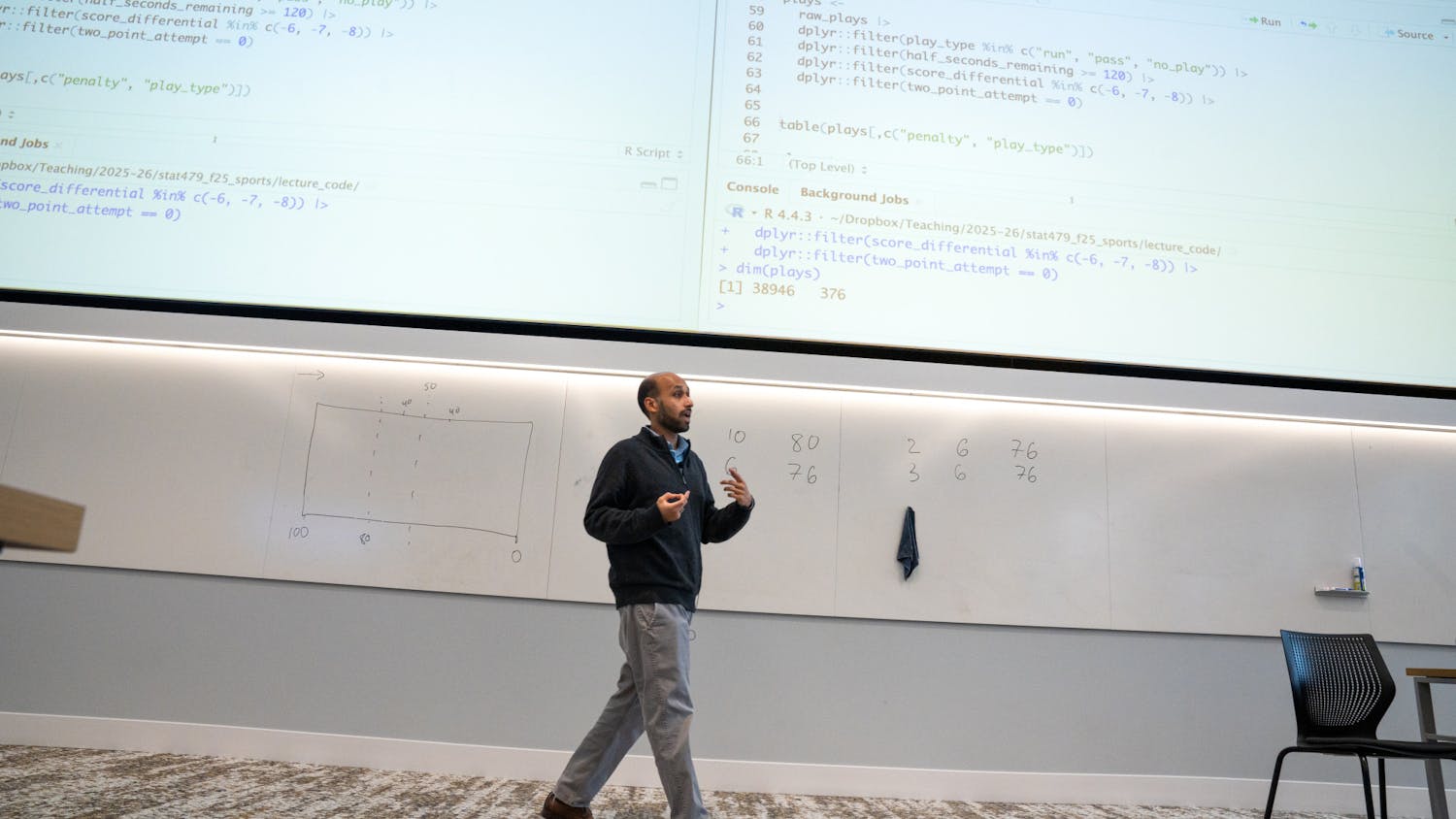University of Wisconsin-Madison professor Dietram Scheufele owns two three-piece, dirt-resistant nanotechnology suits, which he wears when he gives talks on the subject in Washington, D.C. and elsewhere.
Nanotechnology, which focuses on particles less than one billionth of a meter in size, is currently applied in more than 1,500 consumer products as well as the military, such as to make lighter weight equipment or surveillance devices.
Scheufele, a professor in the Life Sciences Communication department since 2004, said nanotechnology and other topics in modern science, including genetically modified organisms and synthetic biology, “change our lives for all intents and purposes.” But he added those changes often do not translate well into the realm of public policy.
“The U.S. is one of those unique countries that has a weird disconnect very often between where the public is, what policy is and where the science is,” he said.
Scheufele researches the relationship between the life sciences and social sciences as well as how the media and the public make sense of new technology, especially in a world of online and social media.
In a recent study, he and UW-Madison professor Dominique Brossard found that impolite online comments in response to a new story about a technological innovation gave readers the perception the new technology would be riskier.
Scheufele said this can undermine the efforts to present new technologies in an unbiased way. He added new technologies increasingly bring about questions society needs to answer.
“We’re moving into a world where our technologies develop so quickly that we as a society don’t have enough time to debate what the implications are,” he said.
Scheufele also works at a National Science Foundation center at Arizona State University studying nanotechnology and with the National Nanotechnology Coordination Office, a branch of the White House.
When thinking about what technological changes mean for policy and the public, Scheufele takes inspiration from working with students and other staff at UW-Madison to look for interdisciplinary solutions.
“How do we present science in ways people can use as much information as possible but also acknowledges the fact that ultimately we’ll never have a full understanding of the science?” he said. “I think that’s going to be the tricky part.”





